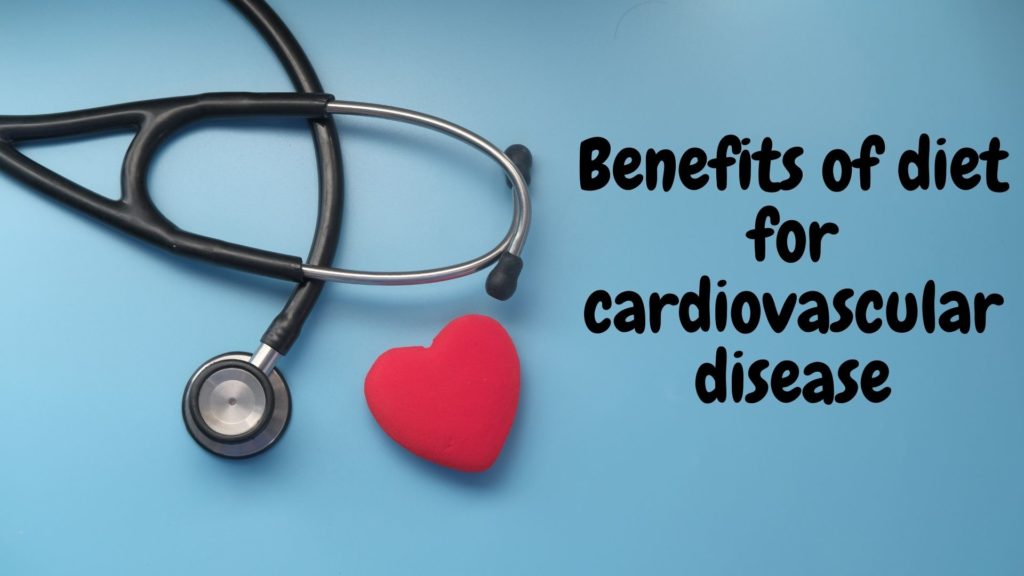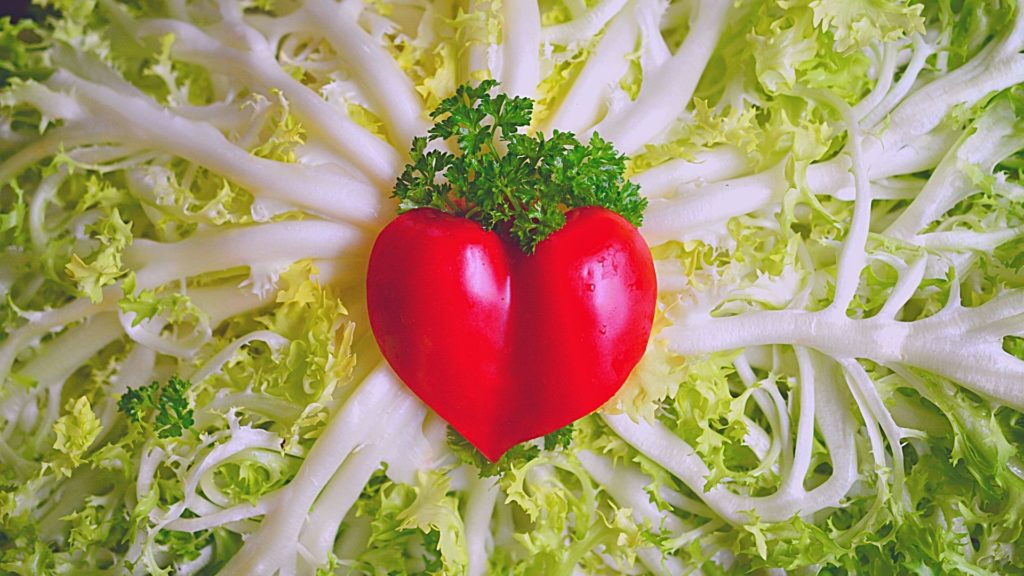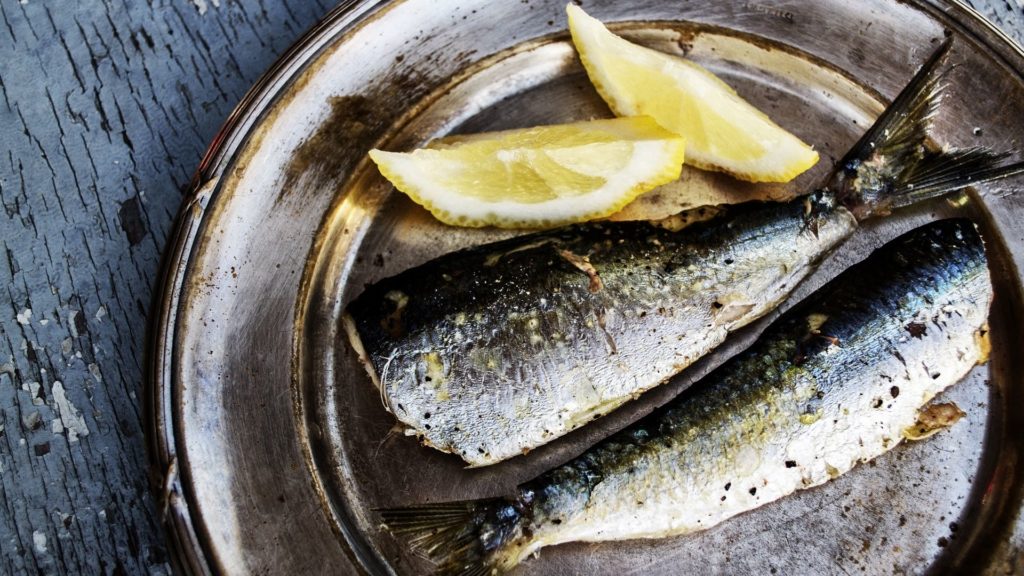A heart healthy diet that must provide good food for the heart, have a preventive effect more than curative on heart health, so, some precautions food can reduce the risk of heart disease up to 52%.

Benefits of diet for cardiovascular disease
It is well known that a balanced diet helps maintain heart health. One diet in particular could significantly reduce the risk of cardiovascular disease, according to two new studies.
17.7 million. That’s the number of deaths attributed to cardiovascular disease each year worldwide, according to the World Health Organization (WHO). Among the risk factors are obesity, diabetes, cholesterol and hypertension. So many pathologies on which diet has a role to play.
To take care of your heart, it is therefore essential to adopt a heart healthy diet. One diet in particular would considerably reduce cardiovascular risks: the Portfolio diet. This is what two new studies published in the Journal of the American Heart Association reveal.
Eating a heart healthy diet can reduce the risk of heart disease by helping to improve the intake of heart healthy diet and nutrients, control body weight, lower blood pressure and control blood sugar and cholesterol levels.
it helps to:
- Increase consumption of heart-healthy foods
- Avoid foods that are bad for the heart
- Regulate blood sugar and cholesterol levels
- Reduce blood pressure
- Maintain a healthy weight
- Promote a healthier lifestyle
- Prevent the occurrence of cardiovascular accidents
Is the Mediterranean diet perfect for cardiovascular diseases?
Yes, several studies show that it is good for heart health. Simply because it is a diet that recommends an organic, heart healthy diet, less fatty foods, but requires a good quality of fat such as fish and lean meat, twice a week, apart from that, the Mediterranean diet, prohibits all processed and industrial foods, and next to fat, we remove sweets too.
Thus, it favors the consumption of vegetables and fruits in season, which is much better. And the legumes and cereals, those that bring us many vitamins and minerals. To learn more about the mediterranean diet visit :
What To Eat and what Not To Eat for Better Heart Health?

Heart-healthy diet is foods that are primarily those that allow the cardiovascular system to function properly while protecting it from cardiovascular events. It is recommended to adopt a Mediterranean diet rich in good fats, fiber, fruits and vegetables and lean proteins. In case of cardiovascular disease, the diet should be complemented by physical activity.
Good fats
Monounsaturated fats have been shown to improve blood cholesterol levels. It is therefore recommended to consume foods that are a source of them regularly:
- Olive and rapeseed oil
- Non-hydrogenated margarines
- Avocado
- Oilseeds
Polyunsaturated fatty acids
Especially omega-3, are protective for the heart. Those of marine origin have been the most studied. They have anti-inflammatory properties and protect the arteries from atherosclerosis. The recommended intake of plant omega-3 (ALA) is around 1 g per day. Also, the need for marine omega-3 (EPA and DHA) is 500 mg per day. To reach these needs, it is recommended to consume fatty fish 2 to 3 times a week.
Fish rich in omega-3 are
- Salmon
- Trout
- Mackerel
- Sardines
- Herring
- Tuna
In addition, adding a plant source to each can also help meet the need. Good sources of plant-based Omega-3s are:
- Flaxseed and oil
- Walnut and nut oil
- Rapeseed oil
- Chia, pumpkin and hemp seeds
lean protein
Choosing lean cuts of meat is very important in the Special Heart Health Diet. Meats that are recommended for consumption are:
- Beef: Inside round, steak or roast round, steak or roast outside round, loin, rump roast, tenderloin, sirloin, stewing beef, extra lean ground beef
- Pork: Roast and buttock chops, tenderloin, boneless end roast, middle loin
- Poultry: White meat of chicken or turkey without skin, guinea fowl, pheasant and goose without skin
- Veal: Roast buttock or shoulder, loin, chops, cutlets, steak
Fruits and vegetables
Fruits and vegetables are foods that fight bad cholesterol, are rich in fiber, vitamins and minerals and protect against high cholesterol.
Attention: for those who suffer from hypertriglyceridemia, eat fruits that have less sugar and take them after the main meals.
Top 10 Heart-Healthy Foods
Here are several foods that can help keep your heart healthy when eaten as part of a balanced diet.
1- Brocoli
Some studies suggest that regular consumption of steamed broccoli can reduce cholesterol levels and prevent heart disease.
2- Asparagus
Asparagus is a food rich in folate, which helps prevent an amino acid called “homocysteine” from accumulating in the body. High levels of homocysteine have been associated with an increased risk of heart disease, such as coronary heart disease and stroke.
Beans, green peas, chickpeas and lentils also known as legumes or pulses can all reduce levels of (LDL) or “bad cholesterol”. They are also packed with fiber, protein and antioxidant polyphenols, all of which have beneficial effects on the heart and overall health.
3- Berries
Berries are also full of antioxidant polyphenols, which help reduce the risk of heart disease. Berries are an excellent source of fiber, folic acid, iron, calcium, vitamin A and vitamin C, and are low in fat, making them one of the best heart-healthy foods.
4- Chia seeds and flax seeds
These seeds are a rich vegetable source of omega-3 fatty acids, such as alpha-linolenic acid.
5- Coffee
One study found that regular coffee consumption was linked to a decreased risk of developing heart failure and stroke.
6- Dark chocolate
But beware! It is important to keep in mind that this study can only observe an association between the factors and cannot conclusively identify the cause and effect relationship.
7- Fish rich in omega-3
According to the American Heart Association (AHA), we should eat a 3.5-ounce serving of fatty fish – such as salmon, mackerel, herring, lake trout, sardines or albacore tuna – at least twice a week.
8- Green tea
Its consumption is associated with a slight reduction in cholesterol, which, as we know, is a major contributor to heart disease and stroke.
9- Nuits
Almonds, hazelnuts, peanuts, pecans, pistachios and walnuts are all heart healthy food options. These nuts are packed with protein, fiber, minerals, vitamins and antioxidants.
10- Oatmeal
Because oatmeal is rich in soluble fiber, it can help reduce the risk of heart disease. Oat products significantly reduce LDL and total cholesterol without any adverse effects.
Cholesterol and Heart, what To Eat?
In case of hypercholesterolemia (i.e. high level of cholesterol in the blood) which can worsen the situation of our arteries, we should certainly favor certain foods and avoid others. In this case, we must avoid : Mutton, lamb, fatty meat, cold cuts, tuna, highly fermented cheeses, whole milk, kefir, fermented milk, butter, chicken skin or its thighs, fried food, chips.
An important point not to be missed
Olive oil, we are used to hearing that it is a very beneficial oil for health and that it has an effect that lowers the high cholesterol level!
Olive oil is a good fat, beneficial for health (mono unsaturated fatty acid), but it is a fat that brings a lot of calories if consumed in large quantities. Thus, it is necessary to avoid cooking with olive oil, because it doesn’t resist heat, because it becomes saturated when used for cooking, and causes high levels of bad cholesterol (LDL). So olive oil is made to be eaten raw, after cooking any meal, you add a tablespoon of olive oil on your dish.
The Difference Between Triglycerides and Cholesterolemia diet
First of all, what are triglycerides?
They are molecules of glycerol and fatty acids responsible for fat storage in fat cells.
A person who has high blood levels of triglycerides is either sensitive to simple sugar (in which case he/she must follow a controlled diet limited in simple sugar), or he/she is sensitive to fats (Low fat diet) or he/she is a person who is sensitive to both fats and fast sugars which is generally the case so in this case the person must avoid:
- Pastries and cakes
- Carbonated drinks
- Fruit juices
- Pancakes
- pancakes
- Fruit should be eaten after a meal containing protein.
- Cold cuts
- Fatty fish
- Eggs 3 to 4 times a week.
- Whole milk
- Butter, margarine
- Fried food, and fried food.
- Rapeseed oil
- Fermented cheeses
- Sheep or lamb meat
Foods to be eaten in limited quantities
- Dried fruits and oilseeds
- semi-skimmed milk
- Avocado
- Olive oil 40g per day.
- Authorized foods:
- Skimmed milk
- Cheese with 0% fat
- Pork, rabbit, duck, chicken (without skin), turkey.
On the other hand, cholesterol is totally fat. So to lower it, you need a low-fat diet. However, our body still needs cholesterol, but good cholesterol (HDL), and we must limit bad cholesterol (LDL). See the diet mentioned above.
How Do we Choose The Right Fat for Our Heart?
All experts agree that foods containing trans fats should be avoided because they increase cardiovascular risk. It is necessary to check the list of ingredients of food products in order to identify terms such as: hydrogenated vegetable oil, partially hydrogenated vegetable oil, vegetable fat, vegetable margarine.
There are also trans fatty acids naturally present in dairy products and their derivatives as well as in meat. According to the most recent studies, these fatty acids have little impact on cardiovascular risk. Saturated fats should also be avoided in this diet. Indeed, they would have a negative effect on the heart and would promote overweight and atherosclerosis.
Foods Rich in Bad Fats Quality are :
- Cookies, pastries, pastries
- Pasta
- Fried and breaded products
- Industrial products and prepared meals
- Fatty meats
- Deli meats
- Butter
- Hydrogenated margarine
- Palm and coconut oil
- Cheese
- Cream
- Milk and whole milk products
For example, instead of mutton, choose pork or beef, and instead of rapeseed oil, take olive oil but in moderation and raw.
Foods To Avoid if You Have Heart Disease
Alcohol
Excessive alcohol consumption can increase blood pressure and contribute to the development of cardiovascular disease. Some studies have shown that people who drink alcohol in moderation have a slightly lower risk of heart disease and stroke. Moderate drinking is defined as one to two drinks per day and no more than 10 per week for women, and two drinks per day and no more than 15 drinks per week for men.
- Broth cubes
- Skin, chicken legs
- Cold cuts
- Sheep meat, lamb
- Offal (especially the brain)
- Camembert cheese, highly fermented cheeses
- Added sugars
It is advisable to limit the addition of refined sugar and reduce the consumption of foods that contain it.
Sodium
Several studies have shown that high sodium intake significantly increases the risk of stroke and cardiovascular disease. The main sources of sodium are prepared and prepackaged foods. In fact, more than 75% of the sodium we consume comes from processed foods such as cheeses, deli meats, pizzas, sauces and soups as well as dried or smoked foods. So avoid processed and canned foods, and eat less salt.
Avoid
- Stress (the solution is sport)
- Sedentary lifestyle
- Tobacco
- Industrial and refined products
Walking, the best sport for high cholesterol
Walking, at least 30 minutes a day, is effective for high cholesterol. Regular physical activity may seem off putting for people who are not very, or not at all, athletic. But make no mistake. It’s not about running a marathon every morning, but only about walking at a good pace for 30 minutes a day.
In fact, this helps to increase good cholesterol and lower bad cholesterol. Everyone should adjust the effort to his or her abilities, the main thing being to get moving. Ideally, you should practice a sport 2 to 3 times a week in order to build up your arteries and your heart muscle. By working it, it becomes more resistant.
Reduce the Risk of Cardiovascular Disease by 50% With Plants.
The researchers found that people with a plant-rich diet and a high food quality score, in other words, those who ate mostly so called “beneficial” foods, were 52 percent less likely to develop heart problems than those who did not. “A nutrient-rich, plant-centered diet is beneficial for cardiovascular health,” said Yuni Choi, co-author of the study.
This is normal, in fact it is because plants contain fiber, the latter it is indigestible, so it remains as a barrier in the intestines and capture the excess sugars and cholesterol and prevents it from passing into the blood.
Conclusion
Dietary cholesterol would have adverse effects only in some people who produce it in excess. The main sources of dietary cholesterol are egg yolks, shrimps and crayfish and offal.
It is therefore not recommended to avoid these foods but to consume them in moderation. Studies show that in a healthy person with no history of cardiovascular disease, diabetes or high cholesterol, eating an average of one egg per day (7/week) does not increase the risk of cardiovascular disease in the long term.
I didn’t talk too much about high blood pressure, but we did talk about what to do to lower high blood pressure, which is to decrease sodium intake, avoid stress (we talked about this above), and follow the same recommendations I mentioned above in the heart-healthy diet.
